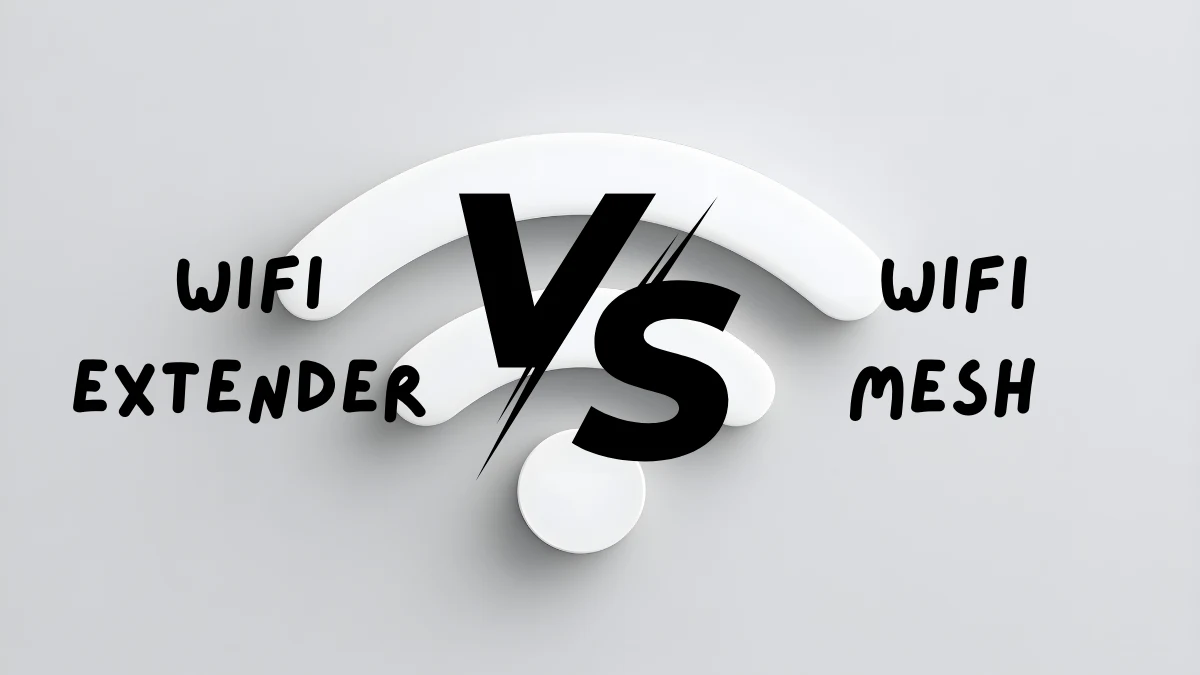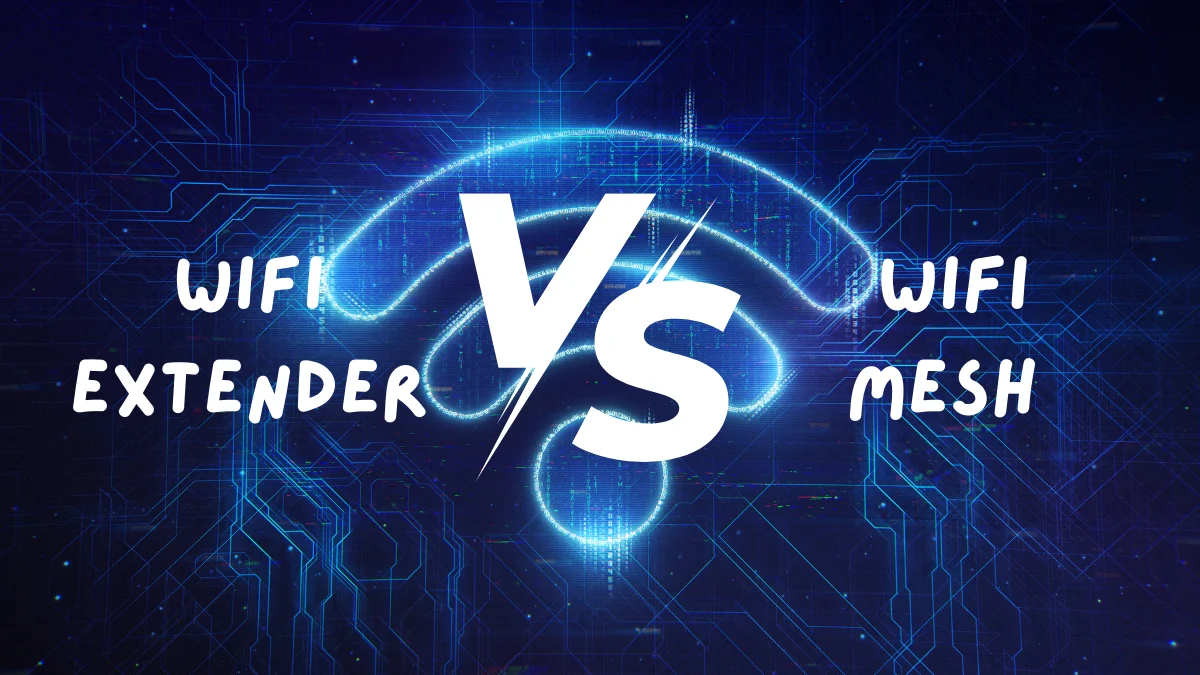A WiFi extender and a WiFi mesh are the keys to extending the WiFi signal to the entire area of your home or office. Although both maximize the expansion of internet connection, WiFi extender vs mesh have some significant differences.
The differences between WiFi extender vs mesh include how they work, advantages, and disadvantages.
This article will delve into the important differences between WiFi extender vs mesh for extending the WiFi signal to the entire area of your home or office.
What is a WiFi Extender?

A WiFi extender is an electronic device used to extend the range of a WiFi signal to a new network. This device receives signals from the main router via a connected Ethernet cable to amplify the signal and broadcast it to a wider area.
By creating a new network, the WiFi extender does not reduce the bandwidth of the main router. This means that the signal strength remains the same before and after installing this device.
What is a WiFi Mesh?
WiFi mesh is a wireless network system that uses multiple devices (routers and satellites) to create a uniform and stable WiFi network across a large area. The purpose of this system is to provide internet connectivity without any dead zones.
WiFi mesh creates a single WiFi network with one SSID from several interconnected “nodes.” Nodes are divided into two types: those connected to the modem act as the main router, while the others act to spread WiFi throughout the area.
The Difference Between WiFi Extender vs Mesh

A WiFi extender and a WiFi mesh are both used to extend the WiFi signal to the entire area of your home or office, but they have some differences. Here are the differences between WiFi extender vs mesh:
How they work
Although both serve to expand the WiFi signal network, WiFi extenders and WiFi mesh have different ways of working.
WiFi extenders work by capturing signals from the main router and rebroadcasting them with a wider range. On the other hand, WiFi mesh works by connecting several nodes to create a wide and stable network.
Advantages
Although they work differently, both devices have their advantages in expanding the network.
WiFi extenders are more affordable and easier to install than mesh systems. Extenders are suitable for reaching.
If you need wide coverage, a WiFi mesh is more suitable for your needs. Mesh systems have a more stable signal, higher speed, and can be moved without interruption.
Disadvantages
Not only do you need to consider the advantages of these two devices, but you also need to consider their respective disadvantages.
WiFi extenders often have inconsistent performance, especially if the device is too far from the main router. You also need to switch manually between networks if the connection is lost when moving locations.
If you don't have a large enough budget, then forget about choosing a WiFi mesh system. This system is also more complex in terms of installation and maintenance compared to a WiFi extender.
That’s the difference between WiFi extender vs mesh that you can consider when choosing according to your personal needs.
If you need a wider network at an affordable cost for your home, a WiFi extender is a good choice. However, if you need to cover a large area with consistent stability and speed for your office, you can choose a WiFi mesh. [UN]